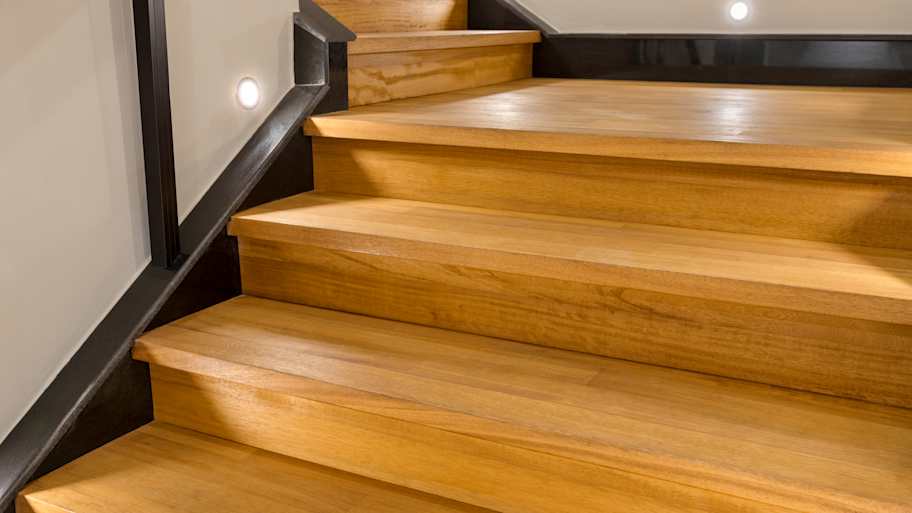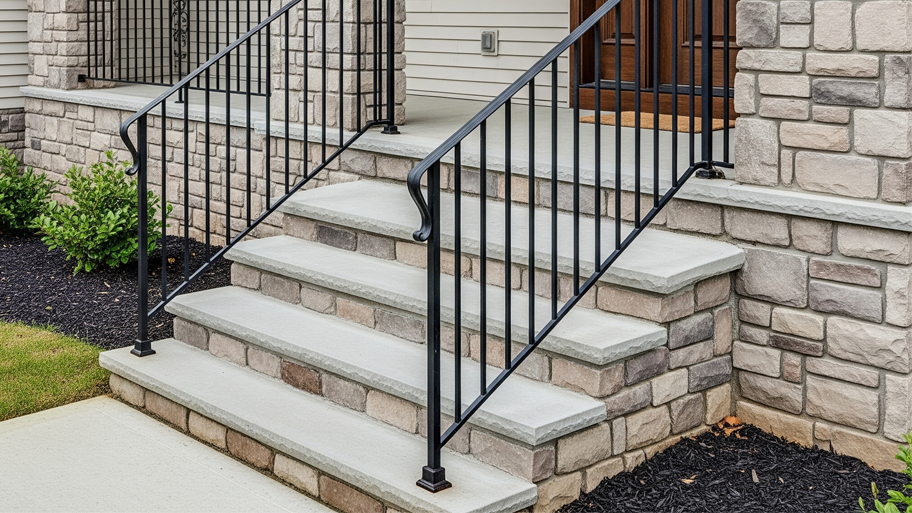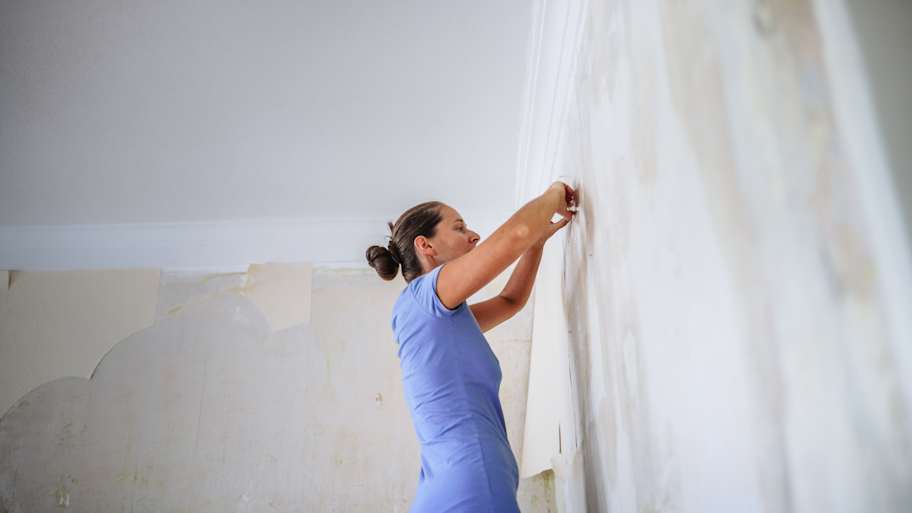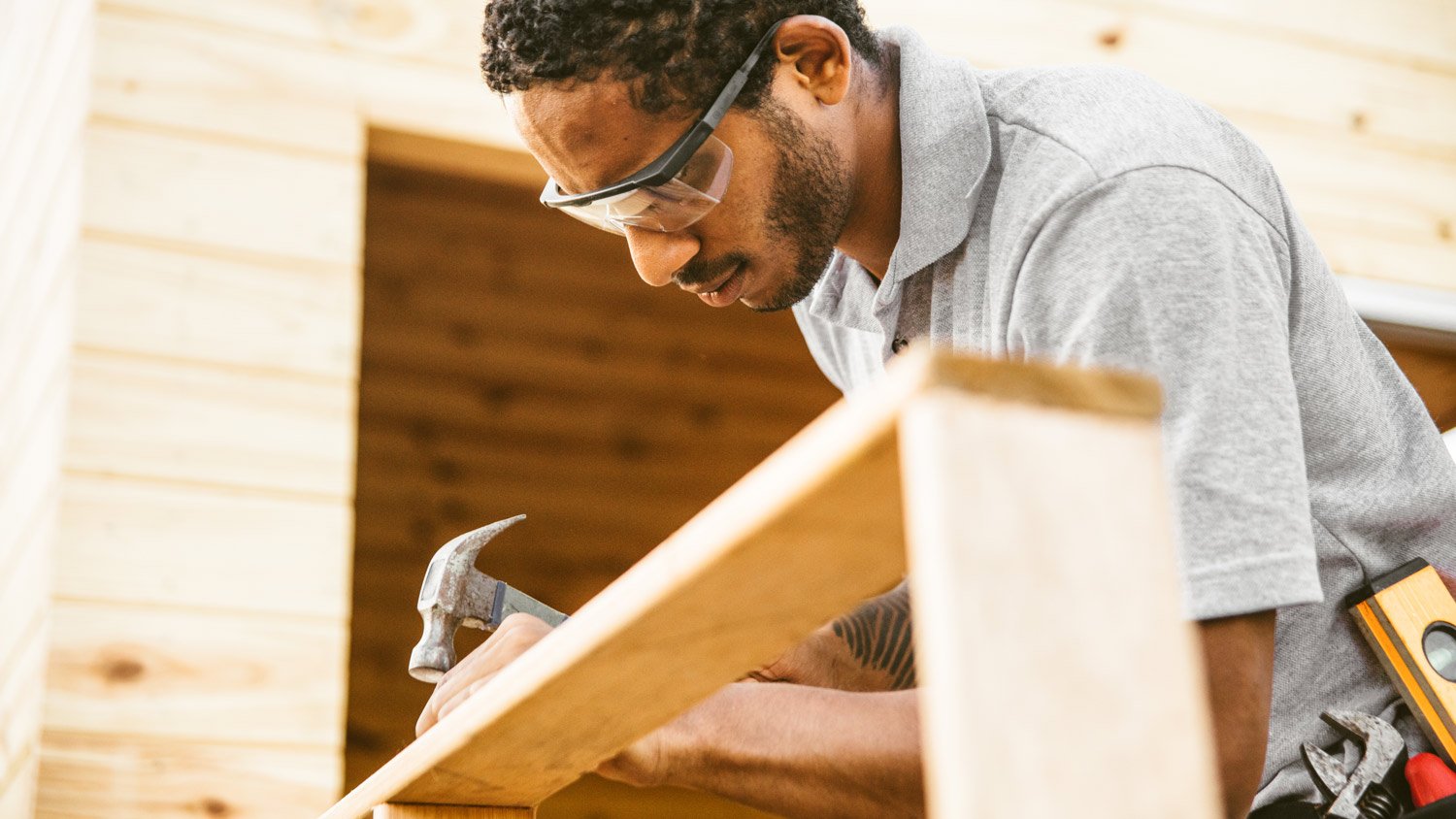
Get a firm grip on stair railing and baluster costs based on material, style, and the whether you choose to hire a pro. Read on to learn more.
A spiral staircase costs $10,400 on average, with most homeowners paying between $3,000 and $15,000. Your total depends on size, material, labor, and customization.


The average cost to install a spiral staircase is $10,400, with prices ranging from $1,000 to $25,000.
Material, size, and installation complexity are key factors in determining total costs.
Opting for custom designs and premium materials can increase the price to over $20,000.
Professional staircase installation ensures safety and code compliance.
Proper planning and budgeting help maximize value and minimize expenses.
This article was created using automation technology and thoroughly fact-checked and edited by an Angi Editor in accordance with our AI policy.
The average cost to install a spiral staircase is $10,400, with most homeowners spending between $3,000 and $15,000. Total costs vary depending on size, material, and whether you opt for a kit or a custom design. Expect to pay between $1,000 and $5,000 for basic kits, while custom metal or wood staircases can cost $20,000 or more. Hiring a professional staircase installer is essential for a code-compliant project, with prices ranging from $70 to $150 per hour, depending on your location and the project’s demands.
The cost to install a spiral staircase varies based on several factors, including the size and type of staircase, your location, labor rates, permit fees, and any additional features or add-ons.
The size of your spiral staircase plays a major role in the final price. Larger staircases require more materials, longer installation times, and often involve custom fabrication. Most residential spiral staircases feature a diameter of four to six feet and a height of nine to 12 feet, which comfortably connects two levels while fitting within standard room layouts.
Compact spiral staircases are less expensive due to their fewer steps and smaller diameters. However, if you need a wider or taller staircase—perhaps for ease of use, multi-story access, or a dramatic statement—the cost rises. Wider treads and deeper steps require additional materials and more labor. Custom sizing, such as odd heights or non-standard diameters, increases expenses because of the need for specialized manufacturing and design.
| Size (Diameter x Height) | Description | Average Cost Range |
|---|---|---|
| 4x9 ft. | Small, standard for tight spaces or lofts | $3,000–$6,000 |
| 5x10 ft. | Common residential size, moderate width | $5,000–$10,000 |
| 6x12 ft. | Spacious, suitable for main living areas or multi-story | $8,000–$15,000 |
| Custom/oversized | Unique dimensions, multi-story, or special use | $12,000–$20,000+ |
Choosing the type of spiral staircase affects both the upfront cost and the value you get. Prefabricated or kit staircases are budget-friendly, arriving with pre-cut parts and basic hardware. These kits are ideal for straightforward installations and are less expensive, but they offer limited design flexibility. Custom-built spiral staircases are tailored to your space and taste, allowing for unique materials, shapes, and finishes, but come with higher price tags.
Indoor spiral staircases are often made from wood or powder-coated steel, whereas outdoor versions require weather-resistant materials and finishes, which increase the price. Freestanding staircases may need more robust supports and engineering, while wall-supported models use existing structures to reduce costs. Adding features like code-compliant treads, custom handrails, or accessibility upgrades will increase your investment but improve safety and usability.
| Type | Description | Average Cost | Pros | Cons |
|---|---|---|---|---|
| Prefabricated/kit | Standard sizes, limited finishes | $1,000–$5,000 | Easy installation, lower cost | Limited customization, basic design |
| Custom-built | Made to order, any material or size | $7,000–$20,000+ | Unlimited design options, perfect fit | Higher cost, longer timeline |
| Indoor | Wood, steel, or composite materials | $3,000–$15,000 | Wide material options | Not weatherproof |
| Outdoor | Galvanized steel, treated wood, aluminum | $5,000–$20,000 | Durable, weather-resistant | More expensive, requires sealing |
| Freestanding | Structural support built into staircase | $6,000–$18,000 | Flexible placement | Needs more engineering, costly |
| Wall-supported | Anchored to nearby wall for stability | $3,000–$12,000 | Less material needed, lower cost | Requires suitable wall |
| With accessibility | Features like handrails, wider treads | Add $500–$3,000 | Safer for all users | Increases overall cost |
Where you live—and where you install the staircase—both affect the final price. In areas with higher labor rates, such as large metropolitan regions, installation costs rise. Rural locations might have lower labor costs but higher shipping fees for materials. Local building codes, permit requirements, and regional material availability also influence costs, so it’s important to research your area before starting the project.
Within the home, indoor spiral staircases are less expensive than outdoor ones because they do not need weatherproofing. Installing on upper floors, in basements, or tight spaces can increase labor and equipment needs, as contractors may need to reinforce flooring, reroute utilities, or use specialized tools. Easily accessible locations reduce costs, while difficult-to-reach or nonstandard spots increase both time and expense.
Labor is a significant portion of the cost of a spiral staircase. Installation may require skilled carpenters, welders, or general contractors, depending on the design and material. Hourly rates for these professionals range from $70 to $150, with minimum fees for small jobs. Some contractors charge a flat rate for basic kit installations, while custom projects are billed on an hourly basis. Labor rates vary by region, and additional time is required for demolition, site preparation, or finishing work, such as painting and trim.
Most municipalities require permits for new staircases, especially when structural changes are necessary. Permit fees range from $100 to $600, depending on your location and the scope of your project. Inspections are often required both before and after installation to ensure code compliance, which can result in additional fees. Skipping permits risks fines, safety issues, and problems with future home sales or insurance claims.
Upgrades can quickly impact how much a spiral staircase costs. Decorative balusters, custom railings, integrated landings, and built-in lighting all add to the price. Safety features, such as non-slip treads, child gates, and code-compliant handrails, are essential in homes with children or seniors.
Finishes like powder coating, staining, or weatherproofing increase long-term durability but come with higher upfront costs. Integrating your new staircase seamlessly with existing flooring or structural elements may require extra labor and materials.
Project complexity is another key driver. Unusual shapes, tight installation spaces, or multi-story staircases require more time and expertise. Site prep, including demolition of existing structures, delivery logistics, and debris removal, can add to expenses. Custom staircases may require architectural plans or design fees, and post-construction cleanup ensures your space is ready to use. Some projects require a final inspection to confirm code compliance, which may incur an extra fee.
For hands-on homeowners, a DIY spiral staircase kit can be an appealing way to save on labor. Kits cost between $1,000 and $5,000, and you’ll need tools, safety gear, and a helper for heavy lifting. While you can save thousands on labor, DIY installation carries risks—mistakes can compromise safety, violate building codes, or damage your home. Professional installers bring expertise and ensure code compliance, particularly for custom-built staircases or in challenging locations.
| Cost Element | DIY Installation | Professional Installation |
|---|---|---|
| Kit/materials | $1,000–$5,000 | $1,000–$5,000 |
| Tools/supplies | $200–$600 | Included in labor cost |
| Labor | Your time (20–40 hours) | $2,000–$10,000+ |
| Permit/inspection | $100–$600 | $100–$600 |
| Total | $1,300–$6,200 | $3,100–$15,600+ |
DIY is best for standard kits in accessible areas. Hire a professional staircase builder near you for custom designs, code compliance, or if the project involves structural changes.
Deciding whether to repair or replace depends on the extent of damage and the staircase’s age. Common repairs include fixing damaged treads, tightening loose railings, or refinishing worn finishes. Repair costs range from $200 to $2,000, depending on the issue.
If repairs approach 50% of the cost of a new staircase—or if safety, code compliance, or aesthetics are a concern—it’s best to invest in the cost of staircase replacement. Upgrading can enhance safety and add value, especially if your current staircase is outdated or not compliant with current codes.
A well-designed spiral staircase can boost your home’s appeal and value. Return on investment varies, but homeowners often recoup 50% to 70% of their costs, especially when the staircase enhances space, function, or aesthetics. Spiral staircases save floor space and create a striking architectural feature, making homes more attractive to buyers. The ROI depends on material quality, placement, and how well the staircase fits your home’s style and needs.
Benefits include improved flow between floors, efficient use of tight spaces, and a unique design element that sets your home apart. When planned and installed well, a spiral staircase can be both a practical upgrade and a smart investment.
To keep your spiral staircase project within budget, consider the following tips:
Choose a prefabricated kit over a custom design for budget-friendly options.
Opt for standard sizes and materials to avoid customization fees.
Schedule installation during off-peak seasons for potential labor savings.
Get multiple quotes from local pros to compare pricing and services.
Handle demolition or site prep yourself if feasible and safe.
Limit upgrades and decorative features to essentials.
Maintain your staircase regularly to avoid costly repairs.
Compare wood, steel, and composite for price and durability.
Avoid custom shapes or elaborate features to reduce costs.
Home is the most important place on earth, which is why Angi has helped more than 150 million homeowners transform their houses into homes they adore. To help homeowners with their next project, Angi provides readers with the most accurate cost data and upholds strict editorial standards. We extensively research project costs to develop the pricing data you see, so you can make the best decisions for you and your home. We rely on reputable sources, including the U.S. Bureau of Labor Statistics, academic journals, market studies, and interviews with industry experts—all to ensure our prices reflect real-world projects.
Want to help us improve our cost data? Send us a recent project quote to [email protected]. Quotes and personal information will not be shared publicly.
From average costs to expert advice, get all the answers you need to get your job done.

Get a firm grip on stair railing and baluster costs based on material, style, and the whether you choose to hire a pro. Read on to learn more.

How much does outdoor railing installation cost? Find out the cost to install a railing on concrete steps, porches, and patios, including material and labor.

The cost to install wainscoting depends on labor, materials, and square footage. This guide will help you budget for your next project.

Removing crown molding can refresh your space or prepare for a new installation. Learn the cost to remove crown molding and factors affecting your project budget.

Are you looking for creative and unique built-in bookcase ideas? Be inspired to display your books in style and showcase your favorite genres.

Whether you’re building a new staircase or deck, railing height codes exist to make these features safer. Get to know the right dimensions for your setup.